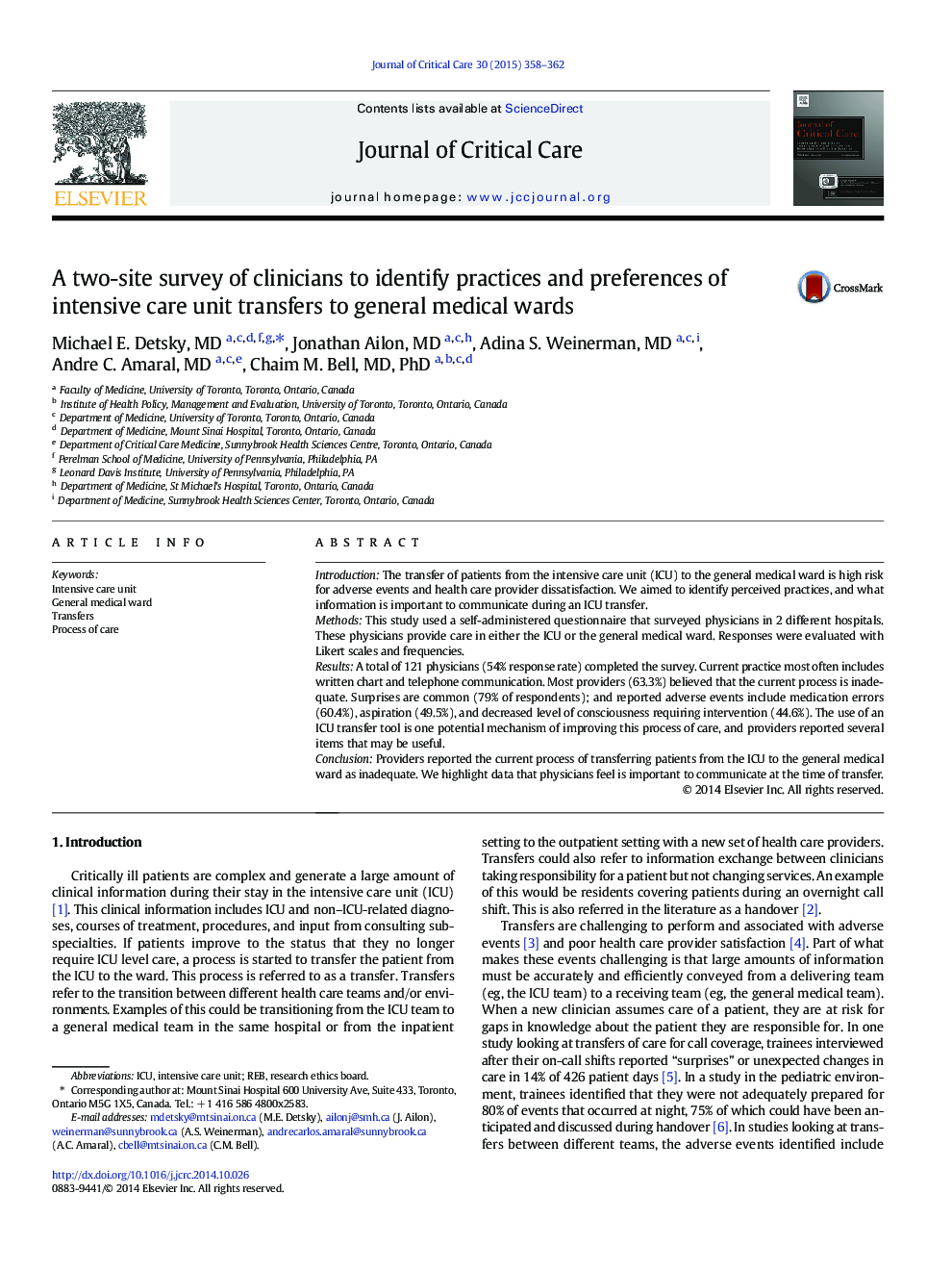| Article ID | Journal | Published Year | Pages | File Type |
|---|---|---|---|---|
| 5885505 | Journal of Critical Care | 2015 | 5 Pages |
IntroductionThe transfer of patients from the intensive care unit (ICU) to the general medical ward is high risk for adverse events and health care provider dissatisfaction. We aimed to identify perceived practices, and what information is important to communicate during an ICU transfer.MethodsThis study used a self-administered questionnaire that surveyed physicians in 2 different hospitals. These physicians provide care in either the ICU or the general medical ward. Responses were evaluated with Likert scales and frequencies.ResultsA total of 121 physicians (54% response rate) completed the survey. Current practice most often includes written chart and telephone communication. Most providers (63.3%) believed that the current process is inadequate. Surprises are common (79% of respondents); and reported adverse events include medication errors (60.4%), aspiration (49.5%), and decreased level of consciousness requiring intervention (44.6%). The use of an ICU transfer tool is one potential mechanism of improving this process of care, and providers reported several items that may be useful.ConclusionProviders reported the current process of transferring patients from the ICU to the general medical ward as inadequate. We highlight data that physicians feel is important to communicate at the time of transfer.
